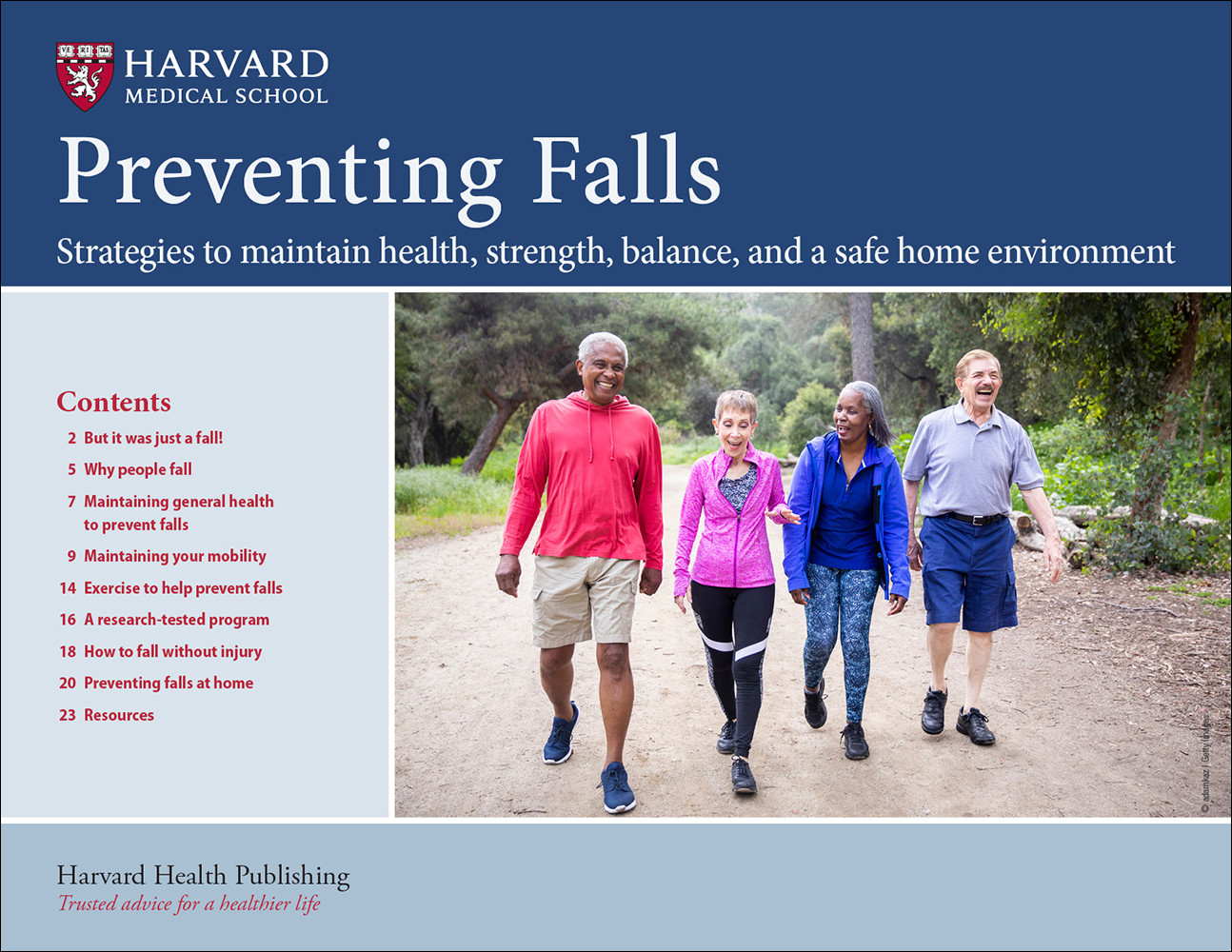Why women take the fall
Intriguing reasons explain why women fall more often than men, but there are simple ways to lower your risk.
- Reviewed by Toni Golen, MD, Editor in Chief, Harvard Women's Health Watch; Editorial Advisory Board Member, Harvard Health Publishing; Contributor

In the friendly competition between the sexes, women face a hefty disadvantage in a distinctly dangerous arena: falling.
Falls are the leading cause of injuries and accidental deaths among American adults 65 and older, but women fall more often than men indoors. We're also 50% more likely than men to show up at an emergency room due to a fall, according to a large 2021 study in the American Journal of Lifestyle Medicine.
This disparity doesn't surprise Dr. Suzanne Salamon, clinical chief of gerontology at Harvard-affiliated Beth Israel Deaconess Medical Center. But she believes most people aren't aware of the myriad ways they can prevent an ill-fated tumble as they age.
"A lot of people know someone who has fallen and broken a bone, or had a parent who did, so they know it's possible in their future," Dr. Salamon says. "But it's definitely not inevitable."
Why we're vulnerable
Regardless of sex, balance tends to become more tenuous with age due to factors such as greater medication use, mounting vision and inner-ear problems, weaker muscles, and health conditions that can lead to numbness in the feet, such as diabetic neuropathy.
But women are particularly vulnerable. Here's why:
Our bones are weaker. Bone-thinning osteoporosis is linked to poorer physical performance and worse balance compared to women with normal bone density.
Our muscle mass is lower. This relative lack of strength can make it harder to avoid falling if we get off-balance. "The loss of estrogen due to menopause really does a number on bones and muscles to make them more fragile," Dr. Salamon says.
We deal with incontinence more often. Rushing to the bathroom can make a fall more likely, Dr. Salamon says, and some women slip on urine they've leaked onto the bathroom floor before they get to the toilet.
We take more antidepressants. Twice as many women as men take depression-fighting medications, whose side effects can make you dizzy and less alert—both of which increase your fall risk.
We have a penchant for multitasking. Efficiency is great until you tip over because you bend to pick up one more thing while carrying a teetering pile of laundry. "When in doubt, take two trips to the laundry room instead of one," she says.
Prevention tips
Despite these sex-related differences, there's much you can do to reduce your fall risk. Dr. Salamon suggests these tactics:
Stay alert. Be mindful of transition points while walking, such as curbs, thresholds, and other seemingly minor hazards.
Exercise with strength and balance in mind. Activities such as tai chi strengthen legs, while yoga can shore up core muscles that help you stay steady when you're upright. Even in people with osteoporosis, resistance and impact exercises such as weight lifting and jumping rope improve balance and eventually reduce fall rates, according to a 2023 report in the Journal of Bone Metabolism.
Consider physical therapy. Your therapist can recommend a regimen geared just toward improving balance. "The only problem is that some people go to physical therapy for a few weeks and then stop doing the exercises," Dr. Salamon says. "They need to become part of your daily routine."
Get regular eyesight and hearing checks. Treat any conditions as they arise and update your glasses and hearing aid prescriptions as needed.
Review your medications. Certain drugs, including over-the-counter remedies, have side effects such as dizziness or sleepiness. Ask your doctor if you can take another type of medication instead or change your dosing schedule.
Make your home safe. Keep floors and stairs clutter-free and make sure all areas are well lit.
Don grippy soles. Don't wear socks around the house unless they're coated with rubber on the bottom, and avoid slippers without treads.
Go hands-free. "I see so many women walking around with big handbags, but wearing a backpack is a better option because it leaves your hands free to hold onto railings," she says.
Image: © AndreyPopov/Getty Images
About the Author

Maureen Salamon, Executive Editor, Harvard Women's Health Watch
About the Reviewer

Toni Golen, MD, Editor in Chief, Harvard Women's Health Watch; Editorial Advisory Board Member, Harvard Health Publishing; Contributor
Disclaimer:
As a service to our readers, Harvard Health Publishing provides access to our library of archived content. Please note the date of last review or update on all articles.
No content on this site, regardless of date, should ever be used as a substitute for direct medical advice from your doctor or other qualified clinician.
















